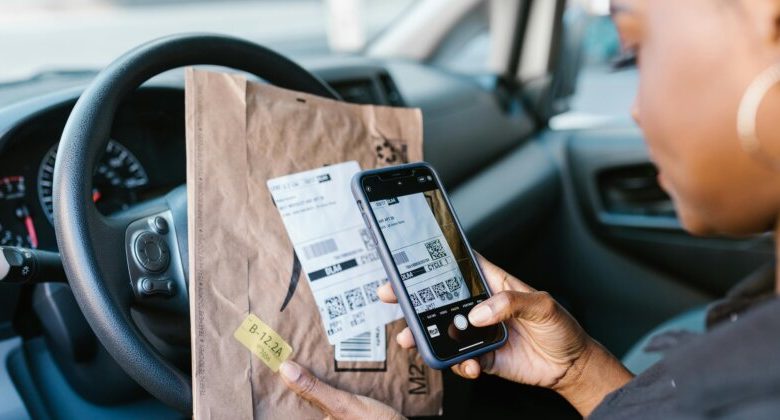How Technology Enhances Modern Courier RouteDelivery Services

The logistics industry has witnessed a transformative shift due to technological advancements. Efficient delivery systems are critical to meeting the rising demand for fast and reliable shipping services. In busy urban areas, where time and accuracy are paramount, how do innovations improve courier operations? What tools are streamlining these complex processes?
The integration of advanced systems into courier route delivery has elevated how businesses handle shipments. From reducing delays to optimizing resource usage, technology has made dispatch services more reliable and efficient. Urban regions, where challenges like traffic congestion persist, have especially benefited from these changes, showcasing technology’s impact on modern logistics.
Revolutionizing Routes With Digital Mapping Tools
Advanced mapping technology has become a cornerstone for modern dispatch services. These systems use real-time data to plan routes, factoring in traffic conditions, road closures, and weather patterns. Cities with dense populations often experience unpredictable traffic, which can disrupt deliveries.
Mapping tools provide dynamic adjustments, ensuring the fastest path is always selected. This reduces delays, improves fuel efficiency, and ensures timely deliveries. The ability to adapt to changing conditions enhances productivity and minimizes operational costs.
Predictive Analytics for Proactive Solutions
Data-driven insights have become essential in logistics. Predictive analytics analyze dispatch patterns, customer behaviors, and peak demand periods to forecast future needs. These tools enable businesses to allocate resources more effectively and avoid inefficiencies.
In metropolitan areas, fluctuating demands pose significant challenges. Predictive models identify potential bottlenecks and allow for proactive planning. This leads to better resource management and smoother operations, ensuring deliveries meet customer expectations.
Automation: Streamlining Operations for Speed and Accuracy
Automation has brought speed and accuracy to critical logistics processes. Sorting facilities now utilize automated systems to classify packages based on destinations, significantly reducing errors and processing times.
In urban settings, where delivery volumes are higher, automation helps prevent backlogs. Faster sorting ensures packages are dispatched promptly, supporting reliable service. This technological advancement has streamlined operations, leading to improved efficiency across the supply chain.
IoT: Real-Time Monitoring and Transparency
The Internet of Things (IoT) has introduced unparalleled transparency into delivery services. Smart sensors and tracking devices provide live updates on package locations, estimated delivery times, and even environmental conditions during transit.
For cities where high delivery volumes make monitoring complex, IoT simplifies tracking and ensures accountability. Customers can access real-time information about their packages, enhancing trust. Businesses also benefit from reduced risks, as IoT devices monitor shipment security and environmental factors.
Sustainability: Greener Solutions for City Deliveries
Sustainability is increasingly prioritized in logistics, particularly in urban areas. The adoption of electric vehicles, drones, and bicycles has significantly reduced the carbon footprint of delivery operations. Technology plays a pivotal role in supporting these eco-friendly solutions.
Smart systems monitor emissions and identify greener dispatch routes. Urban logistics centers often implement sustainable practices to align with environmental goals. These initiatives contribute to cleaner cities and support global efforts to combat climate change.
Mobile Apps: Empowering Customer Engagement
Mobile applications have transformed customer interactions with delivery services. These tools offer features like real-time tracking, rescheduling options, and instant communication with support teams.
In cities where schedules are unpredictable, mobile apps ensure customers remain informed and engaged. Notifications about delivery status reduce the likelihood of missed shipments. The flexibility and convenience provided by these apps have redefined customer experiences, making dispatch services more accessible and reliable.
Key features of mobile apps include:
- Tracking packages in real-time for visibility.
- Scheduling flexibility for added convenience.
- Quick communication with support teams.
Future Technologies Shaping Logistics
The future of delivery services lies in the integration of artificial intelligence and robotics. AI systems enhance operational efficiency by analyzing vast datasets, identifying patterns, and recommending optimizations. Robotics improve warehouse productivity by automating tasks such as sorting and packaging.
Autonomous vehicles are poised to revolutionize last-mile delivery, offering a faster and more cost-effective alternative to traditional methods. As urban areas continue to expand, these innovations will drive further advancements in courier systems, ensuring services remain efficient and scalable.
AI-Driven Optimization for Enhanced Efficiency
Artificial intelligence (AI) has become a transformative force in logistics, providing solutions that improve efficiency and decision-making. AI algorithms analyze vast amounts of data from various sources, such as delivery times, traffic patterns, and customer feedback. These insights are used to optimize operations, from warehouse management to route planning.
In urban areas with complex logistical challenges, AI ensures resources are allocated intelligently. It can predict delays, recommend alternative routes, and identify opportunities to reduce costs. AI-driven systems enhance the speed and accuracy of delivery services, ensuring businesses can meet growing customer demands.
The impact of technology on courier route delivery cannot be overstated. Modern tools and innovations have streamlined operations, improved customer satisfaction, and addressed sustainability concerns. As urban centers continue to grow, embracing these advancements will ensure delivery services remain integral to everyday life.




